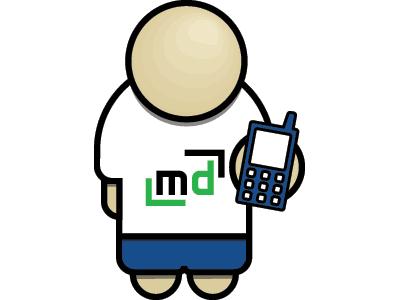Mobile phone barcodes struggling in US trial
Like in Japan, the tech is clever, but what's the point?

We've often looked at the increasing role the humble barcode has to play in our lives, and particularly at the failings of the Japanese QR Code system. So it's a useful comparison to come across a US trial of the same technology.
Students at Case Western Reserve University in Ohio have recently been exposed to similar square black and white barcodes, called EZ Codes in this case, across their campus as part of a field test by a firm called Mobile Discovery.
Various mobile internet applications provide bus timetables, competitions and news alerts to students' phones after they use their cameras to scan the codes and access the associated sites.
Low take-up
According to the latest IHT report on the trial, however, take up has been low. It mentions various reasons, including a ham-fisted sexism blunder, but hits the nail on the head by concluding - as we have before - that the codes are really just not that useful.
After all, why go to the bother of - for example - scanning a little square to get a bus timetable when you could just consult an old-fashioned paper version? Throw in a small charge each time a site is accessed and you see the problem.
Adding technology to our already complex lives just to perform simple tasks really is not what most people want. Hence, the famous square barcodes have a lot of work to do before they find their true calling.
Get daily insight, inspiration and deals in your inbox
Sign up for breaking news, reviews, opinion, top tech deals, and more.
J Mark Lytle was an International Editor for TechRadar, based out of Tokyo, who now works as a Script Editor, Consultant at NHK, the Japan Broadcasting Corporation. Writer, multi-platform journalist, all-round editorial and PR consultant with many years' experience as a professional writer, their bylines include CNN, Snap Media and IDG.